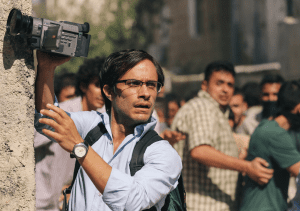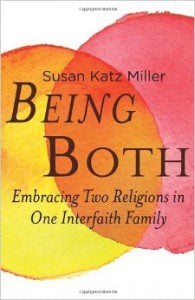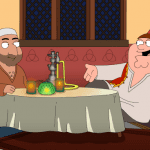 |
|
Art imitates life
|
I generally dislike the word “speechless.” The hackneyed word implies an evasiveness and/or inability to describe a given artwork, person, thing, or emotion. But after watching the movie Crash last night, I am forced to use the word that I most abhor: speechless.
That’s what I felt as I left the theater and indeed that’s what I did: I sat in my room, alone and in silence, trying to absorb the moving yet disturbing content of the film.
The movie, the directorial debut from Oscar-winning writer/producer Paul Haggis (Million Dollar Baby), was inspired after Haggis himself was car-jacked in Los Angeles. The film itself begins when two African-Americans car-jack two white people, one of who turns out to be the District Attorney. The movie then weaves together a mosaic of characters that include an Iranian store owner, an African-American television director, a Mexican locksmith, a middle-aged Korean couple, and many others. Each of these disparate characters collide over the course of 36 hours and confront realities, peoples and neighborhoods unknown to themselves.
The film is concerned with the wisdom that emerges from these collisions. Before the actor Ludacris car-jacks the District Attorney, he laments about the unfair restaurant service�by a black waitress�in predominantly white Santa Monica. In another scene, a senior black lieutenant in the LAPD discourages a young white cop to levy a complaint about racism in the LAPD because it might cost the lieutenant his job.
The film succeeds because it allows simultaneous these truths to exist. In doing so, it blurs the dichotomy between victim and aggressor and makes us question our use of these very terms. The film forces the audience to question and examine the racism, the contradictions, and the insecurities displayed both on-screen and in the audience themselves. In one scene, we see an agitated Iranian man buying a gun yet we are not given the reason until much later. For many the scene may conjure stereotypical images of an angry, bellicose Muslim man; for others it may reveal the insecurity of living in a country with heightened Islamophobia.
When my car was stolen in the West LA suburb of Culver City in 2000 and I was given a physical description of the suspects to look out for, I could not help�shameful as it may sound�to look with heightened suspicion in the ensuing months when spotting someone with that description. And in tracking down my stolen car, I found myself going to neighborhoods of LA that I knew existed but convinced myself I had “no reason” to visit.
After living in LA, I found that its one virtue�the ethnic and racial diversity of the city�can be its vice if you allow it. Unlike New York City where the subway system often serves for people to intersect, LA offers no central square or vein where people travel together and co-mingle. LA is a melting pot where many fail or refuse to melt.
Part of the reason is an institutionalized discrimination which only briefly mentions. But part of the reason is that we�myself including�have failed to form bonds with other racial and ethnic communities. At my work, the trash is taken out each day by an El Salvadorian young man. I have exchanged niceties with him but never anything beyond that. After watching Crash, I sat down with him and I spoke with him about how he immigrated to the US illegally in a banana truck in a journey that took 28 hours and took him eight years to save up for. The movie reminded me that these lessons and truths are all around me but often too convenient to ignore.
Crash is, of course, not without its faults. For a movie based in Los Angeles, the Latino/Chicano and Asian characters are not fleshed out. The Iranian couple is the only ones not speaking in English whereas the Korean couple oddly speaks in English. Some have argued � and I only partly agree � that this prevents the audience from relating to the Iranian couple.
But Crash succeeds because it does something that we have failed to do: tackle the ugly yet very real problem of racial, ethnic, socio-economic discrimination within this country and indeed within our Muslim community.
I cannot promise that the movie will move everyone. But it will, at the least, provide a mirror to examine our own prejudices. And that is enough to leave you speechless.
Zahir Janmohamed needs to put down his iPod and talk more to strangers while on the DC Metro. For more, read www.falloficarus.blogspot.com











